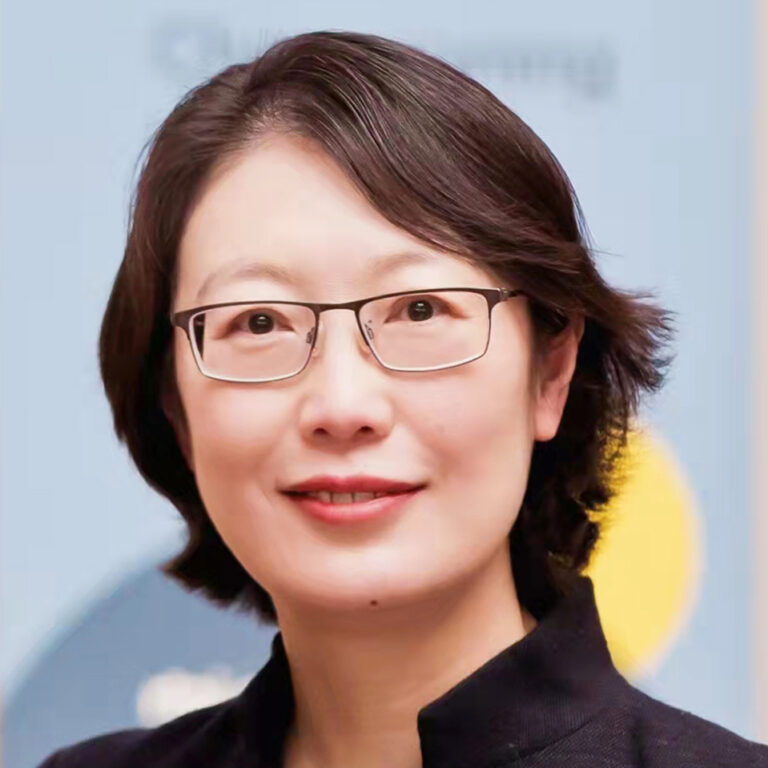Leveraging Digital Innovation to Rekindle the Spirit of Planning
20 May 2024
Dr Wei Yang
CEO, Digital Task Force for Planning
“The fundamental driver of innovation lies in our ability to ask the right questions for the public good.
By framing inquiries that challenge the status quo and encourage creative problem-solving, we unlock the potential to leverage innovation for the betterment of people, the environment, and society at large. “

Tomorrow at UKREiiF 2024, it will be a significant moment for the Digital Task Force for Planning, as an announcement will be made by the Department for Levelling Up, Housing and Communities in relation to the Task Force. At the event, I will also join an outstanding group of women leaders to share my thoughts on why we should view planning as a positive force to tackle multifaceted national and global challenges, and how we can unlock its full potential by adopting an integrated digitally enabled approach.
History repeats itself. Exactly 80 years ago, Abercrombie’s most famous regional plan, the Greater London Plan 1944, was published. At that time, there was a strong belief in planning — it was considered a crucial positive force in postwar reconstruction efforts and key to addressing severe national challenges.
In the current post-pandemic world, a primary challenge we face is the profound global impact on both national and local issues. Simultaneously, the repercussions of local and national decisions extend their influence into the global sphere. This challenge is further compounded by the progressively blurred boundary between the physical and virtual realms. There is a surge of investment in AI and the Metaverse, but no matter how technology advances, it remains a fundamental human right to breathe fresh air, drink clean water, eat healthy food, have access to nature, and live in safe and decent homes. Many of these necessities remain a luxury for a significant portion of people living on this planet.
The planning profession was founded with the spirit of compassion, selflessness, and creativity. In a world desperate for humanistic solutions to tackle grand challenges, spatial planning holds vast potential when embraced as an applied social, environmental, and behavioural science discipline of global significance. I believe that we need a revival of spirit to shape a reimagined planning profession – one that is confident, creative, and impactful, with the ability to think globally and act locally.
However, this reimagination must begin from within the planning profession itself, which necessitates systemic changes. One of the most urgent actions is to leverage the power of digital innovation in spatial planning for the public good before it passes us by, and planners need to have the confidence to lead the way. Because innovation extends far beyond technological advancement, though new technologies are significant contributors, they do not independently revolutionise society.
The fundamental driver of innovation lies in our ability to ask the right questions for the public good. By framing inquiries that challenge the status quo and encourage creative problem-solving, we unlock the potential to leverage innovation for the betterment of people, the environment, and society at large. Embracing the moral responsibility of fostering Truth, Beauty, and Goodness will propel the planning profession forward, repositioning it as a recognised part of the solution in the eyes of the public.
Digital technology empowers us to accomplish tasks that were previously beyond our reach. However, it is vital to acknowledge that automated procedures can never replace the essential role of planners in addressing the complex challenges we face. Soft skills and empathy, inherent to human beings, are indispensable qualities within the profession’s skill set. The relevance of digital and technical skills lies solely in their appropriate and thoughtful application, representing a departure from blind technocratic approaches. By harnessing the potential of digitally enabled spatial planning, we can transcend departmental and professional silos, offering a transformative solution that unites all positive forces towards achieving a Universal Common Good.
I often describe the Task Force as a ‘Digital National Trust’—it promotes valuable knowledge sharing as assets for the public good. In this context, it is especially appropriate to share a quote from Octavia Hill, one of the founders of the National Trust. She once said: ‘New circumstances require various efforts, and it is the spirit, not the dead form, that should be perpetuated.’
While we have greatly benefitted from the vision and dedication of our planning pioneers, it is now our responsibility to rekindle the spirit of the planning profession for the future.
Let us ask ourselves, if not us, then who? If not now, then when?
